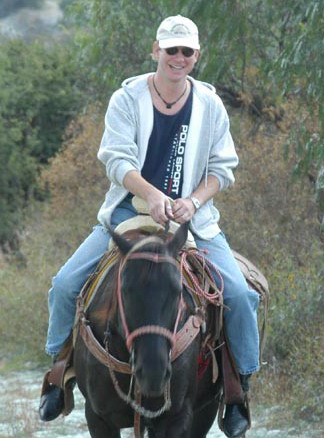The water company here is called SAPASMA (Sistema de Agua Potable y Alcantarillado de San Miguel de Allende – no wonder it’s abbreviated).
When I bought the ranchito, I asked our neighbor why we’d never gotten a water bill. “You won’t,” he said. “I pay the water for all four houses here. If you ask for a bill they’ll start reading our meters and everyone will pay more. Now I pay 600 pesos for the whole year so don’t worry about it.”
I believed him. This is a private development and it is his family who are the developers. Why wouldn’t I believe him?
A month ago SAPASMA showed up at my front gate with a water bill for 47,000 pesos (think over $4,000 USD). They said the bill had never been paid and it was my responsibility to collect from the previous owners. If I didn’t pay within five days, my water would be shut off.
Long story short, my neighbor is full of crap. My water was turned off and together we went to the SAPASMA offices where he was scolded by the woman in charge but we were able to negotiate my bill down to 32,000 pesos. (And I was given three months to pay.) Probably 10,000 pesos of that is the actual water that I’ve used over the last five years. The rest is from the previous owners and penalties for non-payment. (I could probably sue but it is not worth the bad blood between neighbors. Instead, I told my neighbor that I wanted a lifetime membership to the new golf course that is supposed to be built here; hopefully in my lifetime.)
You may remember an entry about a year ago, entitled “Deadly Water” where I chronicled how SAPASMA had over chlorinated our water and killed 26 koi and goldfish in our pond. They’ve done it again.
When SAPASMA killed my fish the first time we called and complained about the chlorine level in the water. Our skin and hair were dry and we smelled like Clorox all day. (We’ve filed three such complaints over the year, which is probably why they showed up and discovered that we hadn’t paid.)
As part of my approaching 50 check-ups, I recently had some blood work done. Notably high was the amount of chlorine in my bloodstream. (We don’t drink this water, but we shower and wash our vegetables in it every day.)
So this morning, when I found all the new fish dead, I was in a heat. I walked to my acupuncture appointment rehearsing my Spanish in my head. Now that I’m paying, why am I paying for poison water? I had visions of hurling the dead fish at the woman in charge. How do you say, “You keep what you kill!” in Spanish?
Instead, I put all the dead fish in a clear zip-lock bag, grabbed my maid, Mari, and off we went to do battle with SAPASMA.
We must have been quite the sight; the tall gringo and the small, chubby Mexican woman, me with my handful of paperwork, her with a bag of shiny dead fish. Not only did we file a report with a clerk, but we were eventually taken to the head of the company. Mari would tell the story and I would elaborate where my Spanish permitted. I showed them my lab reports. Mari told them about our dry skin and how all of our dark clothes were washed out from the chlorine. She alternately sat with the bag of dead fish on her lap or would place them gently on the desk for emphasis. (She felt they should pay for the fish.)
Who knows what will happen but now that I’m a paying customer, and I’ve got Mari by my side, I’m going to continue to make a fuss.
The SAPASMA director promised to increase the number of times per day that the technicians check the chlorinating equipment in our area. We’ll see.
(I told Mari that if I die, I want her to drop my body in the SAPASMA director’s office.)
 Rumors abound. Some say there are four reported cases in San Miguel, another is one but not confirmed, and yet another is none in the state of Guanajuato.
Rumors abound. Some say there are four reported cases in San Miguel, another is one but not confirmed, and yet another is none in the state of Guanajuato.

